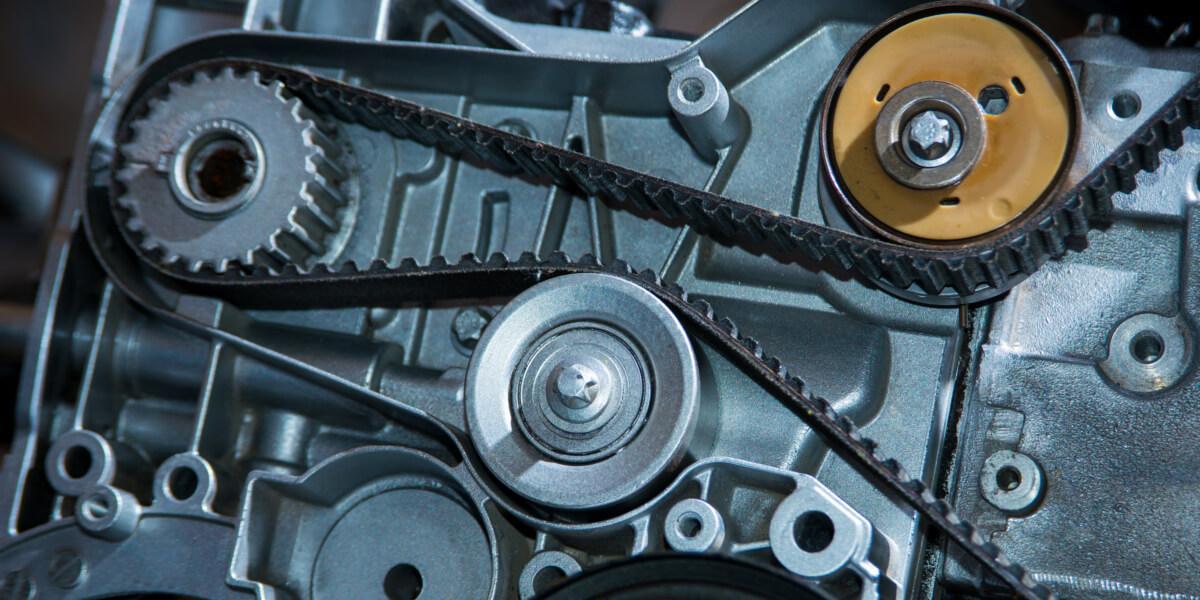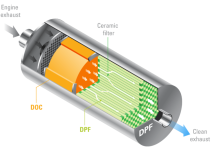As your car nears 60,000 to 100,000 miles, it’s time to start considering replacing your car’s timing belt. It’s around this point in your car’s life that the timing belt is most likely to come off and needs a definite replacement.
But what if you purchased your car pre-owned with no exact idea of when the timing belt was installed? How can you be certain that your belt is on its way out?
Before answering these questions, let’s first understand what a timing belt is.
Table of Contents
What Is a Timing Belt?
The timing belt in your car is meticulously wrapped around a series of gears and wheels. This piece of highly durable rubber plays an important role in the performance of your engine.
Simply put, the timing belt makes sure that the pistons and valves inside your engine move in sync. It does this by checking the rotations of both the camshaft and crankshaft.
Most timing belts tend to age somewhere between 60,000 and 100,000 miles. You can review your owner’s manual for more specific replacement periods.
Remember that without a working timing belt, the engine can’t run. So, ensure that you stay on top of your car’s maintenance schedule and that you replace your vehicle’s timing belt when the time is due.
Now that you understand the role and importance of a timing belt, let’s see six obvious signs that demand an instant replacement of your timing belt.
What’s That Sound?
One sound that you need to watch out for is a high-pitched whirring or screech when you start your car first up and when you’re accelerating or idling. Another thing to look for is a ticking sound coming from within the engine itself. These are sure-shot indicators that the timing belt is malfunctioning.
Between 2000 and 4000 RPM
An engine that starts coming apart when you touch 2000 – 4000 RPM could be failing to operate normally as the timing belt is slack or breaking down from wear and tear. This may translate into the ‘slipping’ of the belt while accelerating.
Heavy Exhaust Fumes
If you observe more fumes and smoke coming out of the exhaust, this could be another hint that your timing belt is ready for a replacement. The engine operating with a malfunctioning belt can produce excessive exhaust fumes.
Engine Will Not Turn Over
In an attempt to start your car, you can listen to the starter motor, but the engine won’t turn over. Apart from any of the above warning indications – damage may have happened to the engine due to a snapped or broken timing belt.
Car Stops Working Abruptly
This is the worst-case situation that can leave you stuck with major engine damage. Because of the apparent danger, you will know instantly if your car stops running suddenly that you need to have a thorough inspection of all running parts, including the timing belt.
Loss of Oil Pressure
A failing timing belt can also cause the oil pressure to drop. The belt is positioned above the oil pan in your car’s engine. If those little rubber teeth on the belt’s interior start to come off, they will collect in the oil pan. As time passes and the oil continues to filter, it can bring those rubber teeth close and clog up the oil pan that leads to decreased oil pressure. Again, this can lead to severe problems, such as your engine overheating due to the shortage of oil flowing through it to keep it lubricated.
The Bottom Line
Considering the cost and health hazard a bad timing belt can lead to; you must get the new one installed as soon as you see any visible signs mentioned in this article. It’s best to look for a low-cost timing belt as the best replacement for your existing timing belt. There are several quality websites that offer such low cost, high-quality timing belts.







